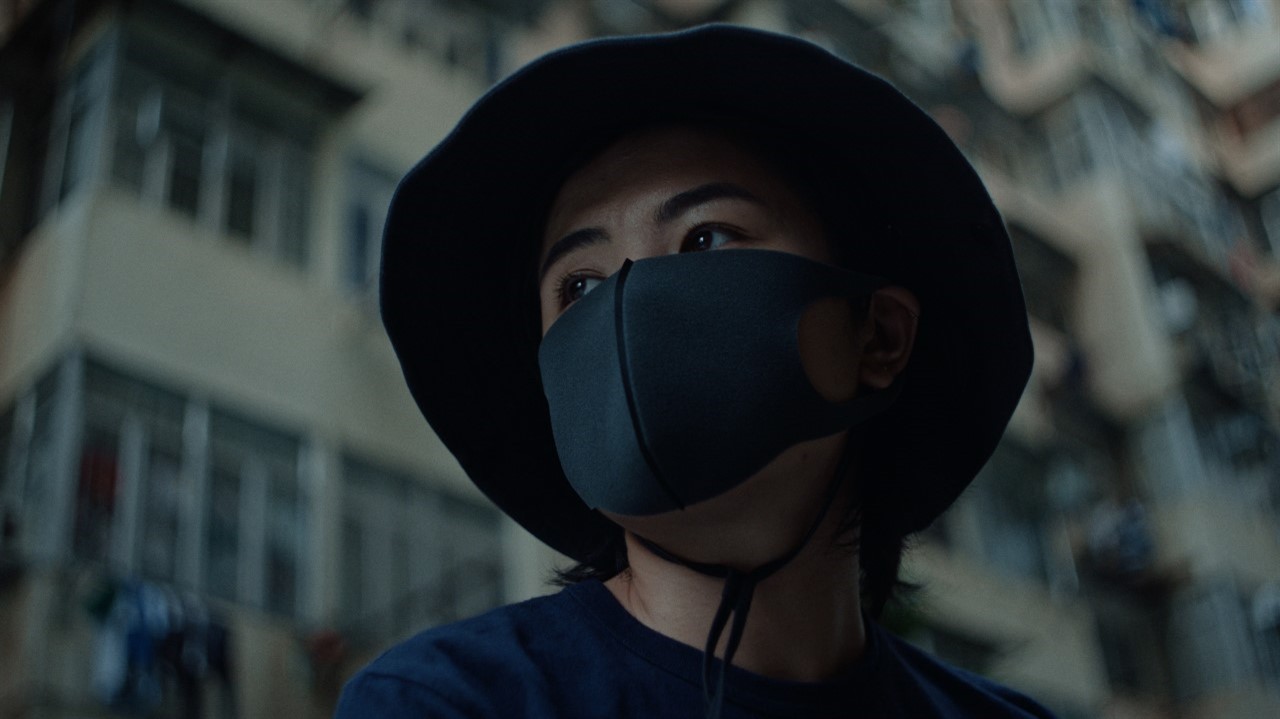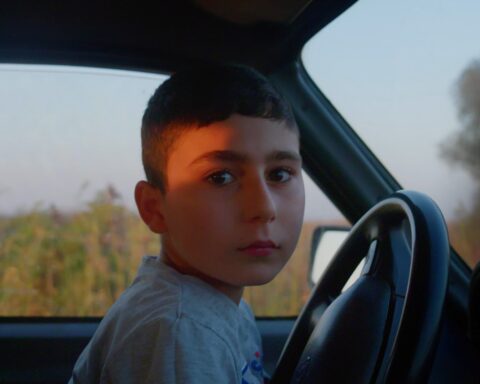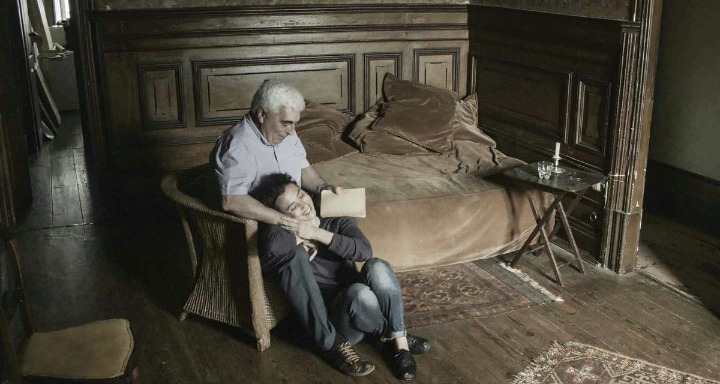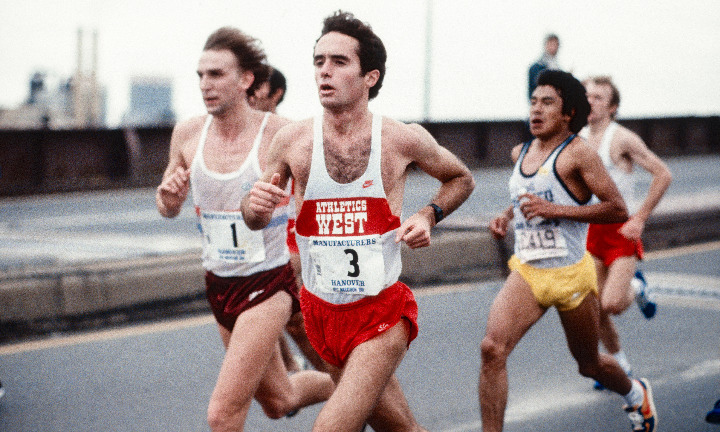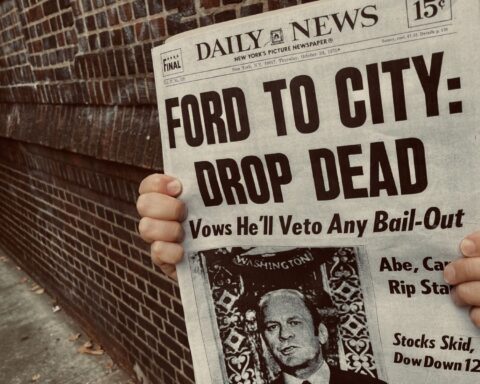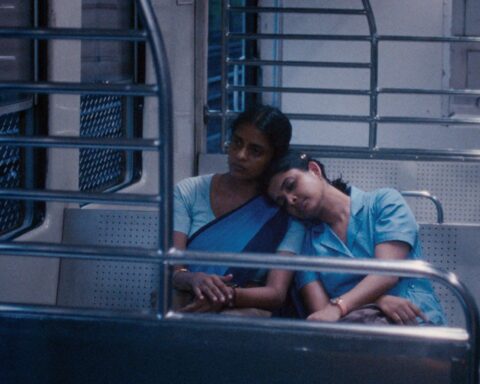“I’m ashamed that we weren’t able to stand against the ones who are bullying us,” says Pepper at the end of Dear Future Children. “It really doesn’t matter if we’re smart or innovative taking it to the streets so often, sharing our demands with the world, now, at the end, we’re still alone. Everything we’ve done, it’s for nothing.”
Pepper is one of three youth activists profiled in Franz Böhm’s doc Dear Future Children. The young Hongkonger, now a political refugee living outside her native country, has reason to be so despondent. It’s hard to feel hopeful after watching the activists fight in Dear Future Children. The doc follows the activists, including Rayen in Chile and Hilda in Uganda, as their quests largely inspire indifference from the adults who have the power to enact change. Böhm smartly uses three subjects to convey the image of a united global fight. Moreover, in selecting three young women, as opposed to merely one, Dear Future Children keeps the subjects’ activism in focus. This is not a PR doc à la I Am Greta. While the subjects of the film might be despondent due to the lack of visible results, their efforts give audiences reason to hope. The spark in these young revolutionaries is undeniably invigorating.
The film follows Pepper as she joins the pro-democracy protests in Hong Kong that began in 2019 over legislation that severely surrenders the rights of Hongkongers to mainland China. While Dear Future Children features much of the footage from the frontlines that proved compelling in docs on the Hong Kong protests like Do Not Split and fellow Hot Docs 2021 selection Faceless, it remains an eye-opener. (Dear Future Children and Faceless actually use several excerpts of the same footage, notably a jarring shot of overaggressive police assaulting Hongkongers on the subway as a father protects his small children from the officers’ batons.) This doc focuses more on the ingenuity of young protesters as Pepper invites the cameras into the communications centre where activists observe the streets from cameras and map the best routes for protesters to evade the police. She is a fierce fighter, and it’s heartbreaking to see her flame burn out as conditions in Hong Kong worsen.
Rayen echoes her frustration. She guides the film through the pro-democracy protests in Chile—admittedly the one thread of the three that needs more context—and explains how young activists fight to break the enduring clutches of late dictator Augusto Pinochet. She notes the growing rich/poor gap in Chile and stresses her concerns about affording a comfortable and equitable living in her country when everything down to the water supply is privatised. The protests in Chile prove especially violent as the police escalate matters. Bullets fly and water hoses flow, and the film sees protesters die directly because of the police’s actions. As with Pepper, Rayen fights a losing battle in a police state.
One might have more reason to find hope in the film’s third narrative, which follows Hilda in Uganda as she joins the fight to inspire action on climate change. Hilda testifies to the devastating consequences of climate change as harsh floods decimated her village, killed members of her community, and forced her parents to sell the farm that supplied their livelihood. She follows the lead of Greta Thunberg and enacts a one-woman Fridays for Future campaign to raise awareness. Hilda notes that she’s been missing school due to climate change for years, so she might as well be proactive about it.
Hilda’s story comes closest to finding results when she participates in a climate summit and shares an emotional plea with world leaders. While action is yet to materialise from the adult leaders themselves, Hilda lends Dear Future Children a note of stirring optimism. As she asks her fellow students why they study for an uncertain future, she is living proof that individual activism works. She follows Greta Thunberg’s lead, who started a movement through her own individual protests. One person’s determination can inspire another and Hilda’s courage should no doubt motivate future activists. Dear Future Children challenges audiences to remain hopeful for their sake. These stories should encourage young audiences to keep up the good fight.
Dear Future Children premiered at Hot Docs 2021.




